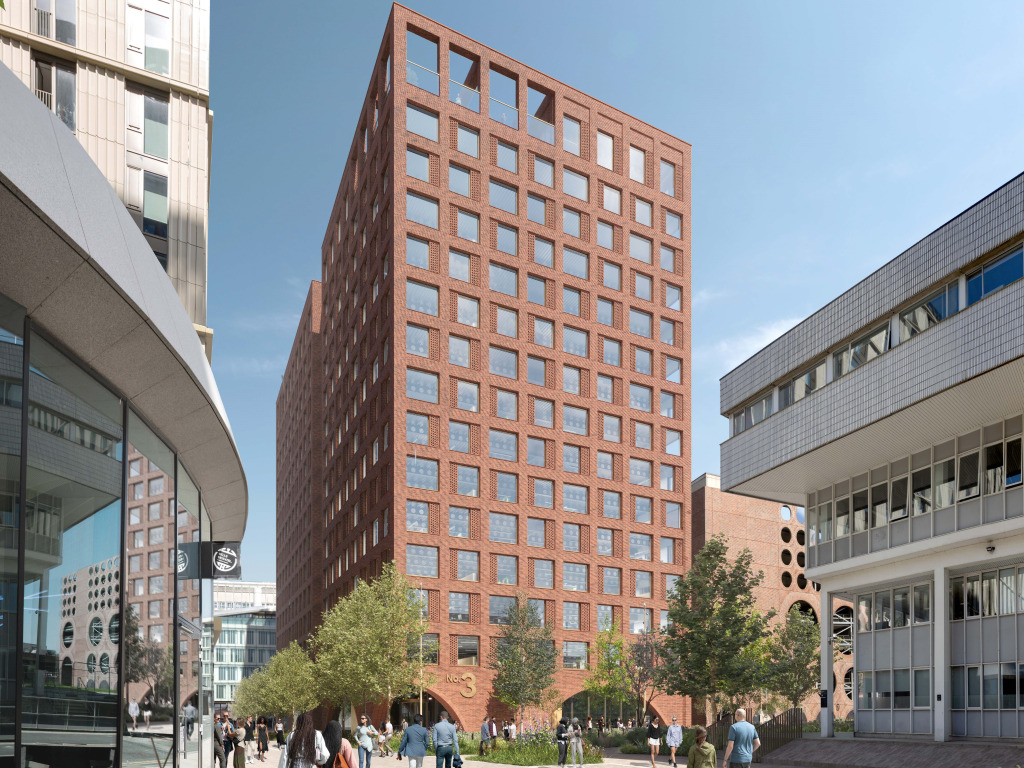The Subplot
The Subplot | Tech traumas, Leeds offices, lucky losers
Welcome to The Subplot, your regular slice of commentary on the business and property market from across the North of England and North Wales.
THIS WEEK
- Tech trauma: is the tide coming back in for the tech sector? There are signs it might be
- Elevator pitch: your weekly rundown of who and what is going up, and who is heading the other way
TECHIES HEART MORE DESKS
Is the tech sector finished with sacking people?
… because if the meltdown is over, it probably means they will be back in the office market. A massive Manchester requirement seems to prove it.
Apple, Alphabet, Palantir, Meta, X, the firm that runs Slack – tech giants have been laying off staff, thousands of them. Smaller firms (OneWeb, Zepz, Deliveroo, Luno) have also let plenty of people go. This follows a giddy hiring spree – some of it to meet pandemic market needs – which left them vulnerable as the economy reshaped. The meltdown took a major player out of UK property markets. Some big names – Facebook, Google, Slack – off-loaded large chunks of floorspace, while others – Amazon, Microsoft – put property plans on hold.
Big problem?
Let’s not get this out of proportion. According to the most-used list of tech job layoffs, so far this year about 11,500 have gone in the UK, all but about 500 in London, the rest in Birmingham, Bristol, and Edinburgh. Manchester, Leeds, and Liverpool (home to a thriving gaming sector) aren’t on the list at all – zilch, nada – meaning either the list isn’t comprehensive, or the three cities’ tech sectors are hanging on to staff. So far Google is still in Peter House in Manchester and Amazon is expanding into its base at NOMA. So the global giant vibe is good.
Tide turns
Among the smaller tech businesses, the surge in lay-offs over the winter seems to be easing: recruitment consultancy Robert Walters says the public sector, banking, and finance are recruiting tech again, with overall tech vacancies up 10% in May and 26% in June. These are London figures but it’s the same in Northern cities. “I’d say we’re up 25% on the start of the year,” says Leif Radford at Manchester specialist recruiter The Candidate. “Financial services and agencies are big growth areas – agencies because some still haven’t the confidence to recruit full-time, so buy in skills from agencies.”
What this means for property
In short, the tide is turning, with banking and finance getting wet first. “It was a quiet winter for the tech sector, and I think it’s going to stay like that for the next six months,” CBRE’s senior director and Northern tech property specialist, Joe Rigby, tells Subplot. “But the office market generally has been propped up by the professional, banking, and finance sector and that’s true for tech, too. Banks are really important to tech demand because they are chasing talent in the city, trying to hoover it up. Towards the end of 2023, and into 2024, tech employers will take a sterner view on working from home, adjust to redundancies, and be back out looking. So, next six to 12 months, they will be back in the property market.”
For example
Keep your eyes on Bank of New York Mellon, which has a massive tech operation in Manchester and a requirement for 200,000 sq ft (up from 150,000 sq ft). Lease events in 2023 and 2026 mean things are brewing for the US giant which does a lot of its tech in the North, and is said to plan an awful lot more. Bruntwood SciTech’s 267,000 sq ft No3 Circle Square completes in 2025, which is excellent timing. Circle Square is already home to Hewlett Packard Enterprise, Roku, Uber’s Autocab, Accenture, Northcoders, and Xero.
Also for example
Total Manchester tech-linked requirements are around 500,000 sq ft and maybe half as much again in Leeds and Liverpool. According to Robert Walters’ data, shared exclusively with Subplot: 18% of all new tech roles advertised come from companies in the North, up from 13% in 2022. So it’s not an over-heated imagination, there’s really something going on.
The Candidate’s Leif Radford points out that with tech employers no longer as willing (or able) to compete on wages, which are often eye-watering anyway, the focus of the battle for talent has moved decisively to terms (flexible working) and the quality of the workplace. Landlords and property developers, take note ahead of 2024.
 ELEVATOR PITCH
ELEVATOR PITCH
Going up, or going down? This week’s movers
Leeds’ office market presses penthouse and rockets up; plans to rethink Manchester’s Piccadilly Gardens plunge down to the loading bay. Doors closing!
 Piccadilly Gardens
Piccadilly Gardens
There must be massive sighs of relief at West8, Planit-IE, and Studio Egret West. Their good fortune is to lose out in a competition to redesign Manchester’s Piccadilly Gardens. Poor old LDA Design, the current preferred contractor, won.
Pity the winner, because the £25m redesign, due to reach planners next year, is a nightmare waiting to happen. A perfectly nice rose garden was removed to make way for de-humanising concrete between 2001 and 2003, and since then it’s been all downhill. The rose garden went because of anti-social behaviour, allegedly, and various further rethinks have fallen foul of variations on the same complaint. Recent iterations left the gardens feeling less like an oasis of calm, and more like the ideal location for public executions.
The connecting thread is that this is a high-footfall, high-inclusivity environment and yet nobody wants to pay the daily cost of patrolling and keeping it nice. Hence each time it’s rethought the answer is a low-maintenance area that soon gets trashed. Until the bus station is moved, and someone agrees to pay for proper upkeep and security, all redesigns, however thoughtful, will go the same way.
 Leeds offices
Leeds offices
More evidence that Manchester’s pre-eminence as the Northern office market du jour is under threat. This time last month Birmingham’s first-half office take-up seemed to be growing at a time when Manchester was stagnating (or sliding backwards) (Subplot, 13 July). Now Leeds joins the party.
The city racked up 146,000 sq ft of city centre deals in Q2, taking the H1 total to 413,000 sq ft. This was up 53% year-on-year. A reminder that central Manchester scored 390,000 sq ft in H1, and is generally a substantially larger market. Another straw in the wind.
Get in touch with David Thame: [email protected]





